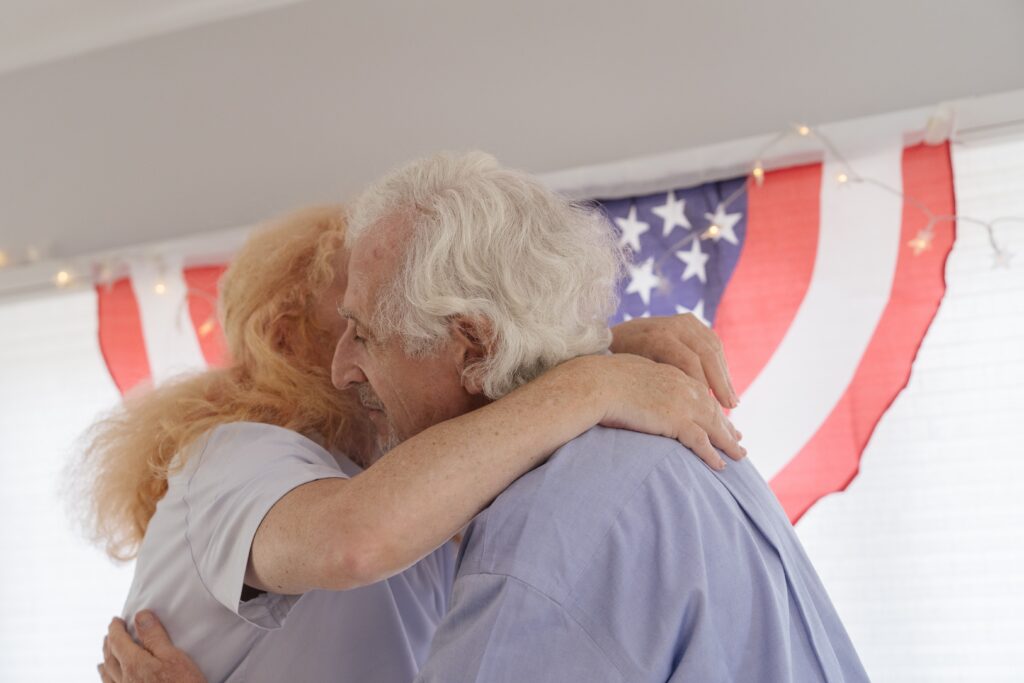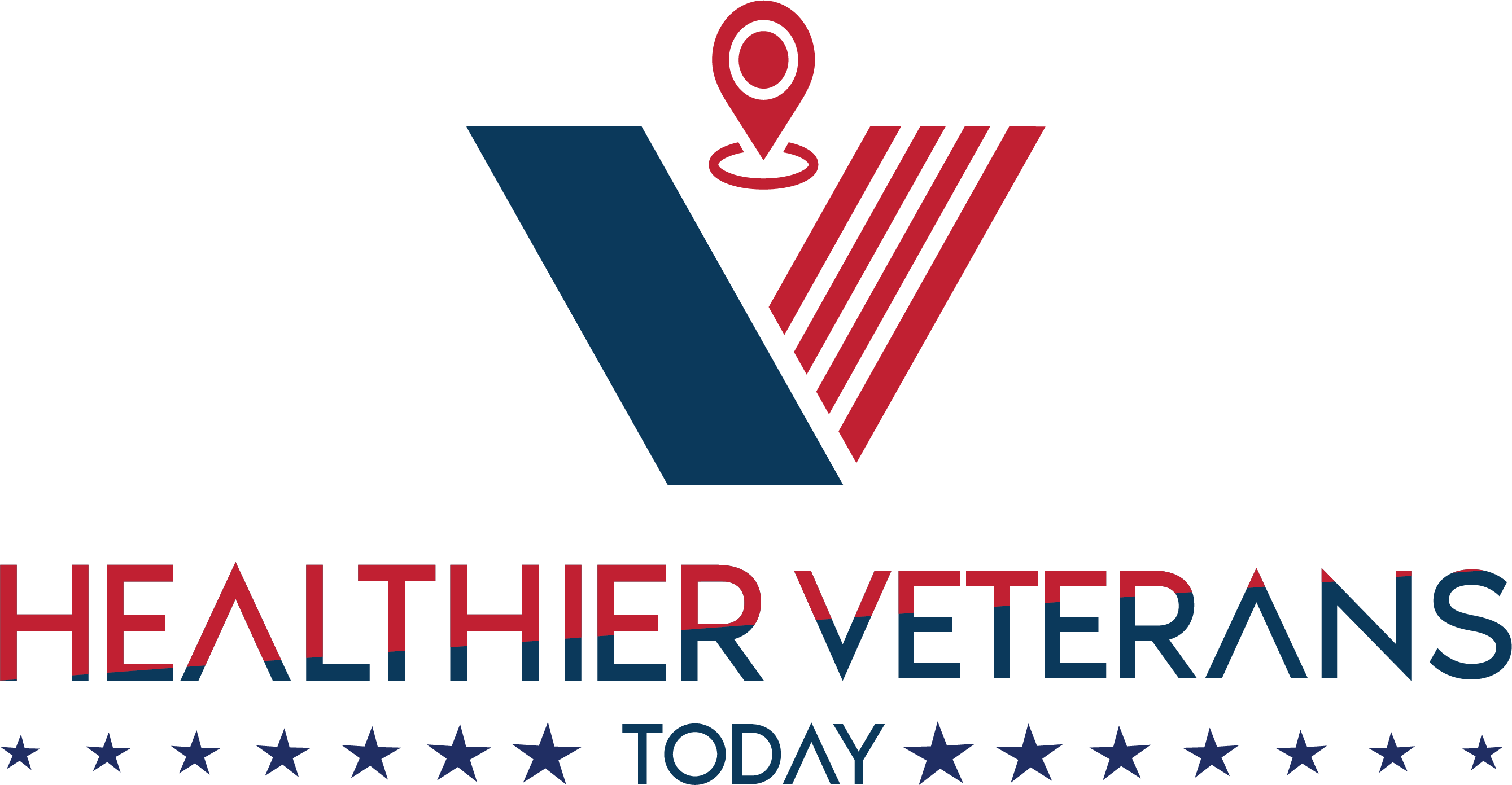Supportive Services for Veteran Families with Healthier Veterans Today! Relationships with family, friends, and coworkers can all have a significant impact on your daily life. People’s love, support, and friendship can improve the good times and help you get through the bad times. When faced with difficult situations, Veterans often become closer to their families and friends; however, there are times when difficult experiences or unhealthy relationships with family members, friends, or peers can cause additional stress or challenges.
What Should I Know About Managing My Friends and Family Relationships: Supportive Services for Veteran Families?

Supportive Services for Veteran Families: Many Veterans are dealing with stress related to military family life or common family challenges, such as finding or keeping a job and taking care of spouses, children, or elderly parents. Even when family and friends are a source of happiness and support, these situations can strain relationships.
Sometimes, getting along with other people is more complicated than you expect. When you return from deployment or additional time away from family and friends, or when you undergo a noteworthy change in your life, such as retiring, moving, or changing jobs, you may not feel like the same person you once were — or you may believe that those close to you have changed. Perhaps the crucial things to your family and friends no longer seem as important to you. Your family and friends may have noticed that you changed, and they may be hurt, confused, sad, or angry.
Your loved ones may feel awkward in your presence because they are unsure what to say or do to make you feel at ease. Even when things are going well, communication can be tricky, even with those closest to you — but failing to communicate during difficult times can lead to even more problems later on.
Supportive Services for Veteran Families When some Veterans, National Guard members, and Reservists return home after being away, they notice things have changed. Others may enjoy being home and seeing family and friends at first, but as the joy of the occasion wears off, they realize that their lives aren’t the same as when they left. It’s understandable to want to spend some time alone after an intense or stressful period or to believe that others may not understand what you’ve been through during your military service.
However, failing to reach out to family and friends can lead to social isolation or relationship conflicts — and may even make you feel worse in the long run. Making time to reconnect with others is critical to your well-being and those around you. It would be best if you also give yourself some time. Both are critical.
Which Family and Relationship Issues Should I Be On the Lookout For? Supportive Services for Veteran Families

Supportive Services for Veteran Families this is what you need to know! Relationships could change quickly, particularly after a significant life change, or they can change gradually over time and be difficult to notice. If you take note of any of the following signs of your relationships, you should seek help:
- You are feeling disconnected from your family and closest friends.
- You are frequently arguing with family or friends.
- Distancing yourself from your spouse/partner
- You feel you and your significant other/partner can’t agree on household tasks or if you’ve been replaced in your previous role after being absent.
- You feel like you are a stranger while living in your own home or observe that your children appear emotionally distant or numb.
- Wishing to avoid people who were once significant to you
- Increasing alcohol consumption or drug use
- Being constantly tense or jittery
- You are feeling enraged or irritable.
- Having difficulty eating or sleeping and feeling hopeless
- Frequently forgetting things
- You noticed that you have a loss of interest or pleasure in activities that you used to enjoy
- Are you having trouble getting through the day or living your everyday life?
- Being violent or physically aggressive
What Can I Do to Address Family and Relationship Problems?: Supportive Services for Veteran Families
You can take various steps to help you deal with your relationship problems. Keep in mind to:
- Make a “communication plan” for communicating your thoughts and feelings to those you care about; consider what you would like to say and how you want to say it.
- Pay attention to what people who care about you have to say.
- Find a social activity to participate in, such as a hobby, a Veterans’ group, volunteer work, or participation in a place of worship.
- Pace your social and family activities; don’t overdo it or you’ll become overwhelmed.
- Find ways to spend time with others that aren’t too emotionally or physically taxing.
- Make sure you get enough sleep.
- Eat properly to maintain a healthy diet.
Take the Next Step to Connect With Someone Who Cares: Supportive Services for Veteran Families
Every day, Veterans from all military branches and eras connect with tried-and-true resources and treatments. Take a look at how to take the next step, the right one for you.
Read the most recent coronavirus information from the VA. Please call before visiting your local medical center or clinic if you have flu-like symptoms such as fever, cough, or shortness of breath. Consider making your next appointment a telehealth appointment.
Are you new to VA? Apply for Medical Benefits

- It’s easy to get started. Create a free online account to help with the enrollment process. Explore the VA’s “How to Apply” page to get ready to apply for VA health care in person, by phone, or by mail.
- Not sure if you qualify for VA health care benefits? Learn more about VA health care eligibility.
- Not sure what kind of assistance you may need? Call 1-877-222-VETS (1-877-222-8387) Monday through Friday, 8 a.m. to 8 p.m. ET, to find the right resources for your needs. If you are deaf or have a struggle with hearing, dial 1-800-877-8339.
- Family members and caregivers of veterans can check to see if they are eligible for VA medical benefits as a spouse, surviving spouse, dependent child, or caregiver. Investigate the health benefits of family and caregivers.
Already a VA member looking for mental health care? Don’t hesitate to make an appointment with a mental health professional.
- If you are already enrolled and receiving VA health care, the quickest way to schedule VA appointments is to call the VA facility where you wish to receive care.
- You can use VA Appointments tools to schedule some VA health care appointments online, view details about appointment scheduling, and organize your health care calendar.
- Contact the closest VA medical center or Vet Center to discuss your needs if you are not currently using VA medical services.
What About Other Supportive Services for Veteran Families Options?

Supportive Services for Veteran Families Provides several Tools and Resources.
- The online self-help portal for overcoming everyday challenges, Veteran Training, includes modules on managing anger, developing parenting and problem-solving skills, and more.
- Veterans’ mental health apps cover various topics, from PTSD to anger management to quitting smoking.
- VA TeleMental Health connects you with a VA mental health provider via a computer or mobile device in your home or at a VA health facility near you. You can find out more about this option by contacting your local VA medical center.
- Vet Centers are community-based counseling centers throughout the United States in all 50 states and US territories that offer various social and psychological services, including counseling, to eligible Veterans, service members, and their families. Counselors and outreach specialists, many veterans, are well-versed in dealing with the tragedies of war, loss, grief, and the transition after trauma. Find your nearest Vet Center to learn more. Teams are also available by phone at 1-877-927-8387, 24 hours a day, seven days a week.
Supportive Services for Veteran Families In a Nutshell
Supportive Services for Veteran Families with Healthier Veterans Today! The ability of a veteran’s military experience to transfer to civilian job skills is critical to a successful transition. Finding work is the most difficult transition challenge for nearly 70% of veterans. Expectations of people leaving the military are higher than reality. When this is combined with many employers’ struggle to translate military skills into job roles, many veterans are left waiting for the “ideal” job, which may not exist.





